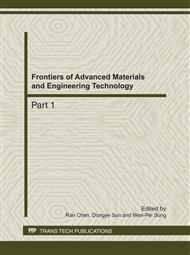p.2021
p.2026
p.2032
p.2037
p.2041
p.2046
p.2050
p.2054
p.2058
Constant Acceleration Control of Valve-Control-Cylinder System Based on Neural Network
Abstract:
To solve the serious problem of the nonlinear and Time-varying uncertainty of the valve-control-cylinder system, a control system was designed with neural-proportion-integral-differential (PID) theory. Because of the capacity of neural network, the control system showed adaptive capacity in the system of valve-control-cylinder. In this paper, the basic theory of a single neural element self-adaptive PID controller and a model identifier based on Radial Basis Function were described. The mathematic model of the valve-control-cylinder control system was set up. The simulation results prove that the neural-PID system can regulate the PID parameters dynamically by self-learning so that the system with the neural-PID controller showed quick track performance and capacity against the disturbance. The results also prove the validity and applicability of the system. The algorithm is simple, PID initial parameters are easy to adjust, easy in application of the real-time control the valve-control-cylinder system.
Info:
Periodical:
Pages:
2041-2045
Citation:
Online since:
January 2012
Authors:
Price:
Сopyright:
© 2012 Trans Tech Publications Ltd. All Rights Reserved
Share:
Citation:


